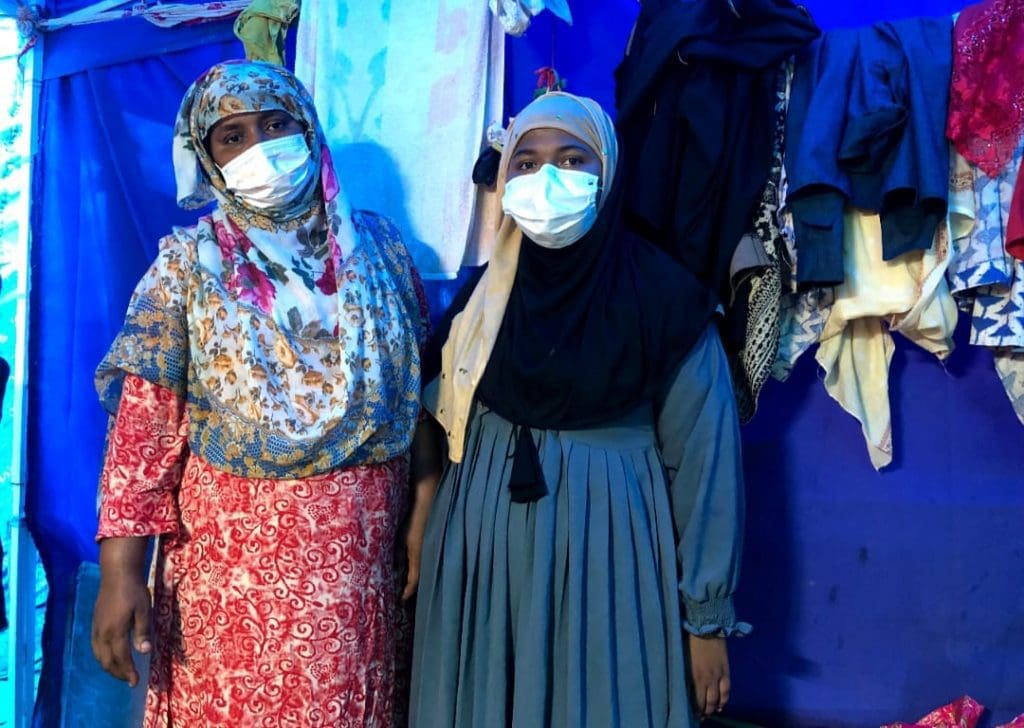
The United Nations High Commissioner for Refugees (UNHCR)’s report titled “Culture, context and mental health of Rohingya refugees” states the following about Rohingya women: “Women are restricted from participating in some parts of public and civic life. The traditional houses are surrounded by fences of bamboo, which enables the practice of purdah (strict gender segregation) preventing women to be seen by outsiders.”
The report further goes on to state that “Marriage continues to be the primary means of attaining social and economic security for Rohingya women and girls, who are traditionally discouraged from working.”
There is something deeply problematic about this shallow narrative popularised by the UNHCR. This narrative lacks empathy and fails to identify the root cause of these larger societal issues amongst the Rohingyas. The report attributes the various social constraints inflicted upon the Rohingya women to traditional practices, the origins of which lie within the Rohingya culture itself.
The report acknowledges the fact that the Rohingyas of Myanmar have lived experiences of persecution and grave human rights violations (historically perpetrated by Buddhist extremists). However, it fails to identify and elaborate upon the fact that the curtailment of the freedom of the Rohingya women primarily emanates from a history of violence and atrocities committed against them.
It is common knowledge that women and children are the most vulnerable groups in the context of communities facing persecution and violence. They become easy targets for the oppressor thereby making it necessary to observe increased restrictions in their daily lives as compared to men.
Tasmida, a 23-year-old Rohingya refugee who has been living in India since 2012 says that there is a common misconception that Rohingya custom encourages early marriages, restricts women from participating freely in some aspects of public life, and discourages women from pursuing education beyond a certain age after which they are restrained from stepping outside their homes unaccompanied by male kin.
She says that the underlying reason behind this is generations of Rohingya women facing brutal violence at the hands of their oppressors with no legal recourse to seek justice.
Tasmida says, “I have heard of so many incidents from my mother about how Rohingya women who ventured out of their homes in Myanmar to pursue higher education or seek employment were kidnapped, brutally raped, or murdered. When girls in my community have grown up listening to such terrorising accounts of the consequences of attempting to be an independent Rohingya woman in Myanmar, it traumatises them to an extent to which sacrificing their freedom often becomes a matter of personal choice rather than a result of regressive societal norms.”
Tasmida is currently enrolled as a student at Delhi University. She is studying political science and is presently in the final year of the three-year course.
“My parents have always encouraged me and my brothers to pursue our academic interests. In fact, one of the reasons my family left Myanmar was so that we could have the freedom to receive higher education. It is almost impossible for Rohingyas to be able to pursue higher education in Myanmar. This holds true for both men and women,” she adds.
She went on to say: “There is widespread discrimination in schools directed towards the Rohingya students in Myanmar. Sometimes our teachers used to purposely make us (Rohingyas) fail exams or get low grades to avoid being killed by the ‘Mons’ ( a major ethnic group in Myanmar). In those rare occasions where a Rohingya student qualifies to be admitted to a university, the daily commute to the university could prove to be fatal at its worst and perilous at best. The worst thing is, even after putting their life at risk to receive higher education, a Rohingya can never have a secure government job in Myanmar.”
Tasmida fled her hometown Buthidaung in Rakhine with her family in 2005 and escaped to Cox’s Bazar (Bangladesh) where she continued her education in a government school in the beginning and then eventually from a private school. In 2012 her family moved to India. After a year of living in Haryana where she couldn’t find a way to continue her education, the family moved to New Delhi where she enrolled herself with the National Institute of Open Schooling (NIOS).
Despite having supportive parents who encourage her to pursue her dreams, Tasmida says that her endeavors to receive education have been full of impediments. Sometimes she had to repeat classes because of the constant transfers and at other times it was due to a lack of proper support from both the UNHCR as well as the local governments. Tasmida aspires to pursue a career in Law once she receives her degree in Political Science. She hopes that someday she will be able to spearhead a movement to persuade the UNSC to create international pressure on Myanmar in order to reinstate citizenship rights of the Rohingyas so that they have an option to return home to a peaceful existence.
Tasmida’s stellar academic record had made her eligible to study law in Delhi’s Jamia university as a foreign national and she had managed to get an NGO based in India to sponsor the steep tuition fees. However, her application was sent to the Ministry of Home affairs in New Delhi for review (given her refugee status) and she hasn’t heard back since the past two years.
Mizaan, an 18-year-old Rohingya refugee who is currently working with the BOSCO refugee assistance program in New Delhi has a similar story. Mizaan has cleared the eighth standard examinations so far after being forced to repeat multiple classes. The Zakat foundation near the Madanpur Khadar area in New Delhi (where one of the Rohingya refugee camps is located ) discontinued funding her education recently.
Mizaan has now started working to raise her own funds to raise the eleven and a half thousand rupees that she needs to get her school leaving certificate, transfer certificate, and result in order to continue further education. She intends to continue her work as a social worker specifically for the upliftment of Rohingya women and children.


According to Mizaan, Rohingya women appear to be reticent in nature because they have been subjected to generations of systemic oppression back home in Myanmar and have little to do with Rohingya traditions and/or customs in general.
“A Rohingya woman in Myanmar does not even have the permission to raise her voice when atrocities are being committed against their family members. We are taught to be silent bystanders for our own protection.”
There are many other women and girls in the Rohingya refugee camps in New Delhi, who are striving to receive education despite a clear lack of support from both international organisations such as the UNHCR as well as the Indian government. Some are investing their time and limited resources to learn profitable skills such as sewing which they hope will help them seek employment.
The UNHCR’s portrayal of the social status of Rohingya women is therefore problematic because it appears to be based on accounts put forth by individual survivors rather than focussing on the issues that contribute to the prevalence of the restricted nature of the lives lead by Rohingya women in Myanmar.
It irresponsibly paints a very regressive image of the Rohingya community which may prove to be detrimental towards their successful integration with host communities especially in a country like India where the government views them as a security threat.
Nilofar Absar, 26, is an intellectual property rights lawyer, currently practicing in New Delhi.



